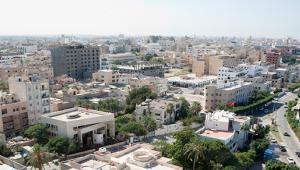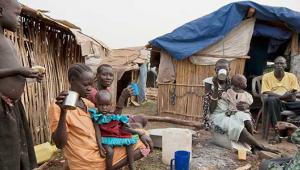nepal shutterstock.jpg

When the 8.2 magnitude earthquake struck Nepal in April 2015, $15m from the CERF helped support over 2 million affected people.
The Central Emergency Response Fund, set up in 2005, pools donor funds and puts them aside to be accessed rapidly when a crisis hits, in rapidly deteriorating situations, and in emergencies that fail to attract sufficient resources.
While compared with the shortfall in some other UN agencies the funding gap at the CERF is relatively small, the UN warned that the impact on the victims of crises could be “devastating”.
In 2015, for example, the CERF allocated less than that figure ($15m) to support two million people affected by the catastrophic earthquake that struck Nepal.
Similarly, in 2016 a $21m contribution from the fund helped to provide 250,000 people caught up in the conflict in South Sudan with basic necessities like water, food, shelter and protection.
In a statement published today, the CERF stressed a shortfall of $25m could prevent it from responding to sudden onset or rapidly deteriorating emergencies.
This would have serious consequences for those affected by crises that urgently need the quick and reliable financial support from CERF’s rapid response mechanism.
It also warned that a funding gap of this size could “eliminate or significantly reduce” a round of funding for neglected emergencies next year.
“Thus, the people in need in the most forgotten, underfunded emergencies, who have already been neglected, could be disproportionately affected by a funding gap,” it stated.
While contributions to the CERF exceeded the annual target of $450m in both 2013 and 2014, in the two years since, the fund has been hit hard by high exposure to exchange rate fluctuations.
The CERF said the shortfall this year is largely due to this, which it estimates lost it $16m over the course of 2016.
This leaves the fund’s total resources for the year, including pledges and verbal commitments, at a total of $425m.
In 2015, also primarily as a result of exchange rate vulnerabilities, the fund only received $402m, meaning it has gone two consecutive years with a significant financing gap.
More significant contributions are needed urgently, it stressed.













